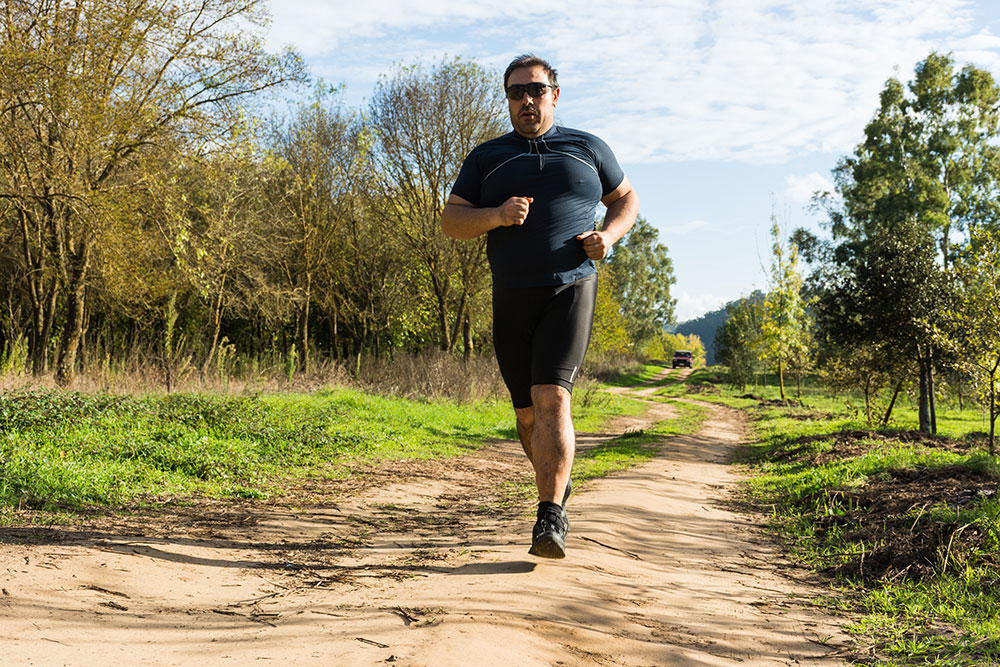Change Your Life to Renew Your Sleep
Receiving professional treatment is the best way to improve your sleep apnea. However, making simple changes to your life can also greatly benefit your sleep. At The CPAP Alternative, our Wake Forest, NC specialist, Dr. Craig Winkelmann can recommend certain lifestyle changes to help you achieve the restful sleep you deserve. Read our guide to learn about what habits can help your sleep apnea.
How Can Sleep Apnea Get Worse?
There are a variety of factors that can cause you to develop sleep apnea or worsening sleep apnea symptoms. While genetics and your neck circumference play a role, having a poor diet can further exacerbate your sleep apnea symptoms. Unfortunately, health issues associated with sleep apnea, such as high blood pressure and weight gain, can also lead to more intense apneic episodes. This can cause a cycle of worsening sleep apnea symptoms and declining health. Making lifestyle changes that address these issues is often a necessary first step in reducing your symptoms.

Maintaining a Healthy Weight
One of the primary contributors to sleep apnea is being overweight. This can cause you to develop fatty tissue around your neck, making it more difficult for oxygen to pass through your airway throughout the night. Maintaining a healthy weight through diet and consistent exercise can reduce your symptoms and give you more energy during your daily life.
Regular Exercise
Exercise offers a wealth of benefits for your health such as improving blood flow and boosting your metabolism. Even walking 30 minutes a day can improve your sleep apnea symptoms in the long run. Try to get your body moving in fun ways like taking a dance class or going out walking while listening to music. It can help control your apneic episodes, relieve stress, and boost your happiness.
Eating a Well-Balanced Diet
Part of having a healthy weight is a balanced diet. The good news is that you don’t need to completely change what you eat to regulate your diet. Making healthy alternatives or practicing portion control can go a long way. Dieting also gives you the opportunity to make your own meals and practice your cooking skills in the kitchen.
Cutting Alcohol & Caffeine
Consuming an excessive amount of alcohol or caffeine can disrupt your sleep schedule and increase your risk of snoring. If you suffer from sleep apnea, Dr. Winkelmann may recommend limiting your consumption of these drinks. Try a healthier morning alternative like breakfast tea, cut off caffeine before noon, and reserve alcohol for just birthdays, holidays, or other special occasions.

Don’t Pass Up Professional Treatment
While making certain lifestyle changes can help improve your sleep apnea, these are most effective when combined with professional treatment. While most people think the only way to treat sleep apnea is with a CPAP machine, Dr. Winkelmann offers alternatives to this traditional method with oral appliance therapy. These custom-made nighttime mouthguards work to adjust the position of your jaw as you sleep to keep your airways open and reduce sleep apnea symptoms. They’re quiet, comfortable, affordable, and allow you to sleep in any position.
Frequently Asked Questions
What lifestyle changes can reduce my snoring?
This depends on the causes of your sleep apnea and snoring. The most common solution is weight loss if you struggle with obesity, poor eating habits, or a large neck circumference. Your sleep dentist can give you a more accurate layout of what changes you may need based on the results of your sleep study while developing your personalized treatment plan.
Will losing weight help improve my sleep apnea condition?
Yes! If you struggle with obesity, developing healthy habits to improve and maintain a healthy weight can relieve you of your sleep apnea symptoms. Your quality of life will further improve as you’ll have more energy during the day, lowering your risk of serious health complications, and improving your physical and mental health.
Can sleep apnea go away on its own without any treatment?
No! It’s important to undergo a sleep study if you believe that you may be struggling with sleep apnea to receive effective treatment. Leaving your sleep apnea symptoms untreated can cause you to develop more serious issues later on, such as hypertension, heart disease, and more. Seeking professional care from a sleep specialist can get you the help you need.
Will I need to change my lifestyle if I have sleep apnea?
Not at all! If you need to make certain changes for sleep apnea, you won’t need to suddenly become a regular at the gym or your own personal nutritionist. These changes will come over time as you gradually build good habits. Some examples of small, beneficial changes include walking for just 30 minutes, practicing portion control, and buying a sleep posture pillow.
How You Live Can Impact How You Sleep
Combining professional treatment with simple lifestyle changes is the best way to tackle symptoms associated with sleep apnea. At The CPAP Alternative, Dr. Craig Winkelmann can help by recommending simple lifestyle changes to get your sleep back on track. Call our Wake Forest, NC office today at (984) 237-1013 or by filling out our online contact form. We also welcome patients who reside in Riverstone, Staffordshire, and Brooke Hollow, NC.
